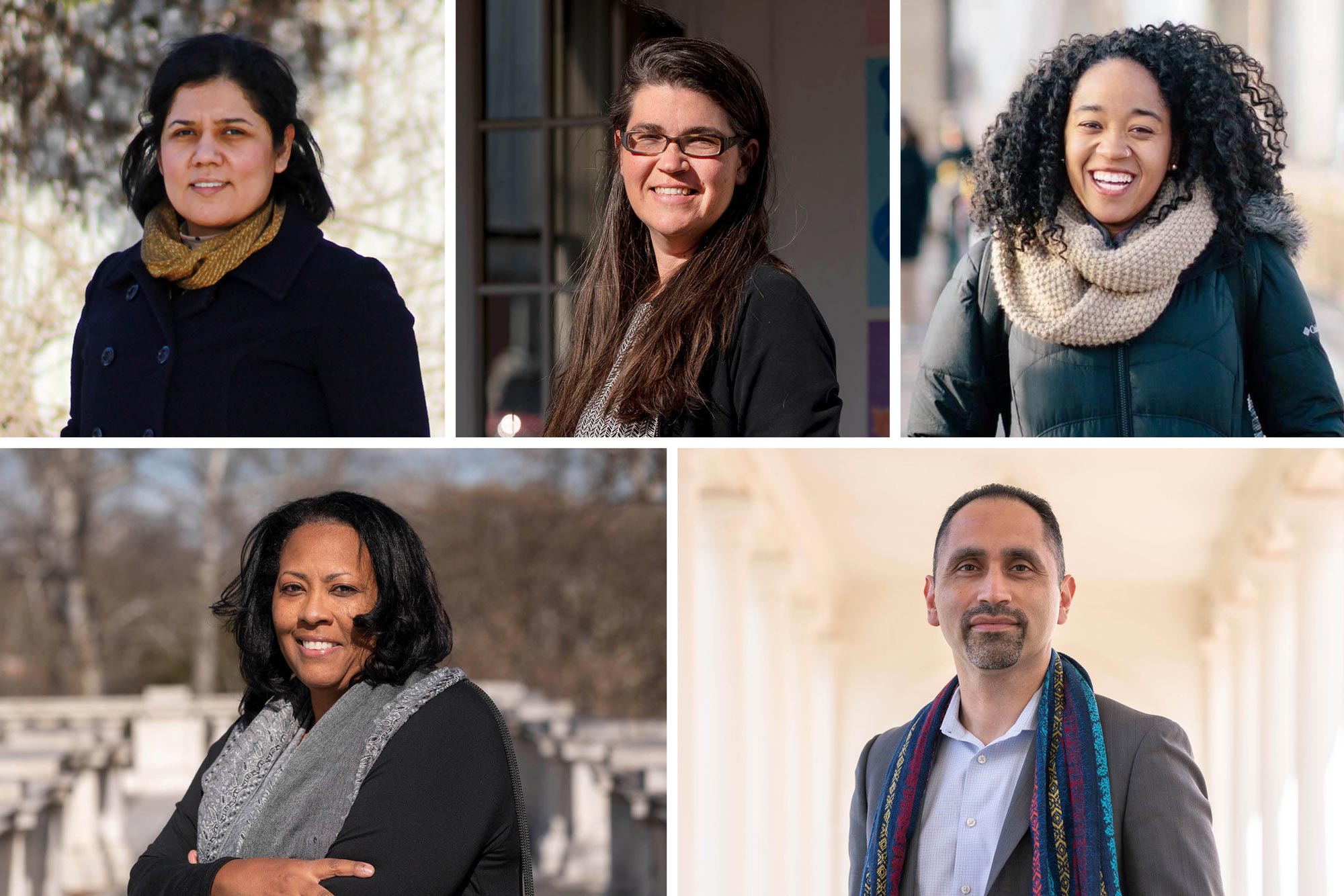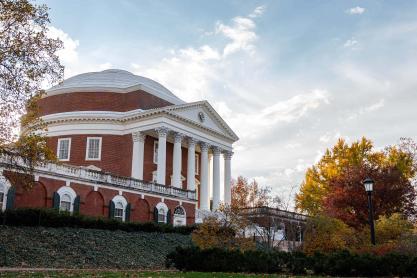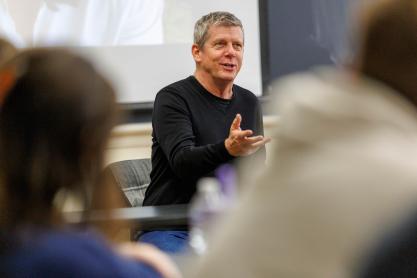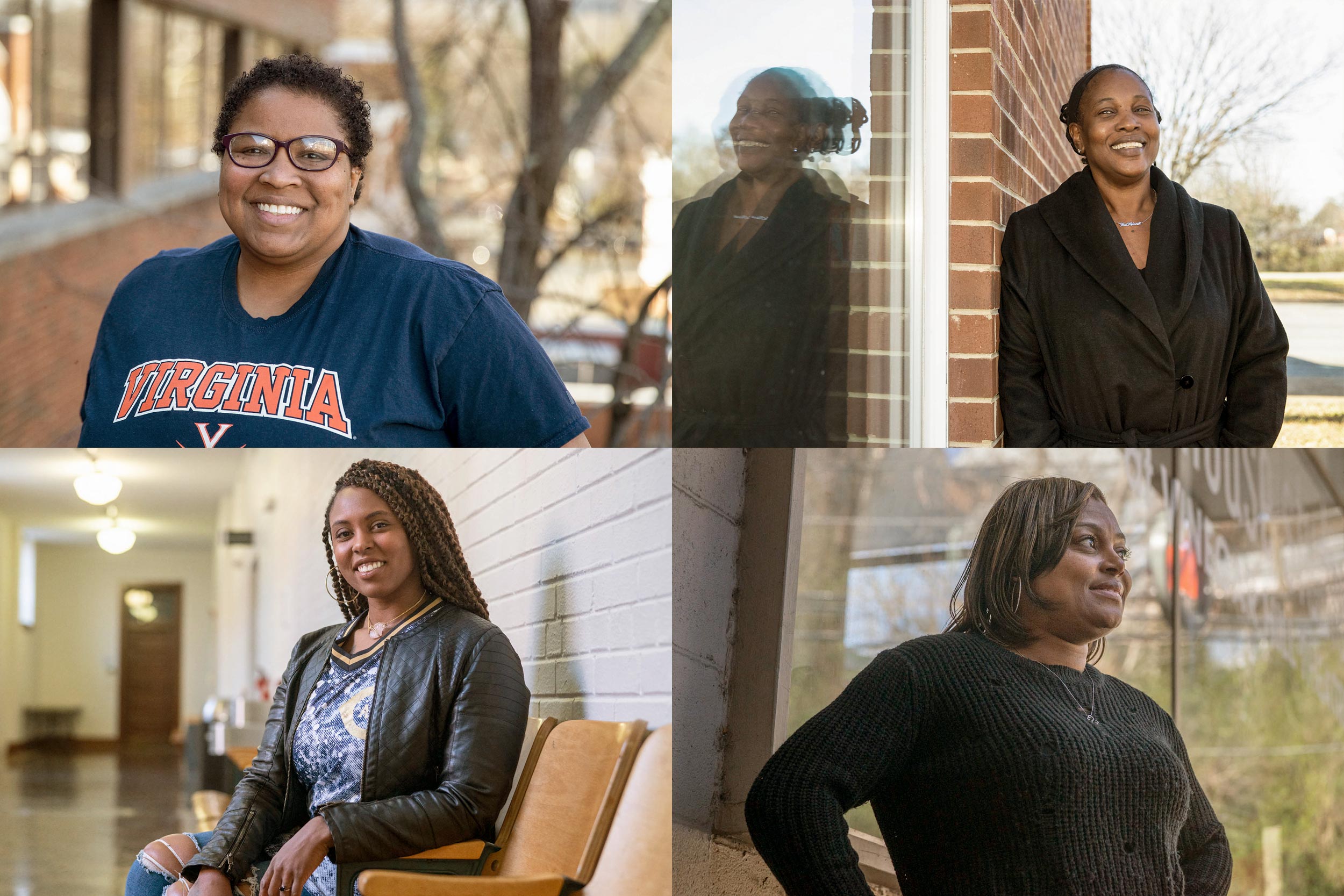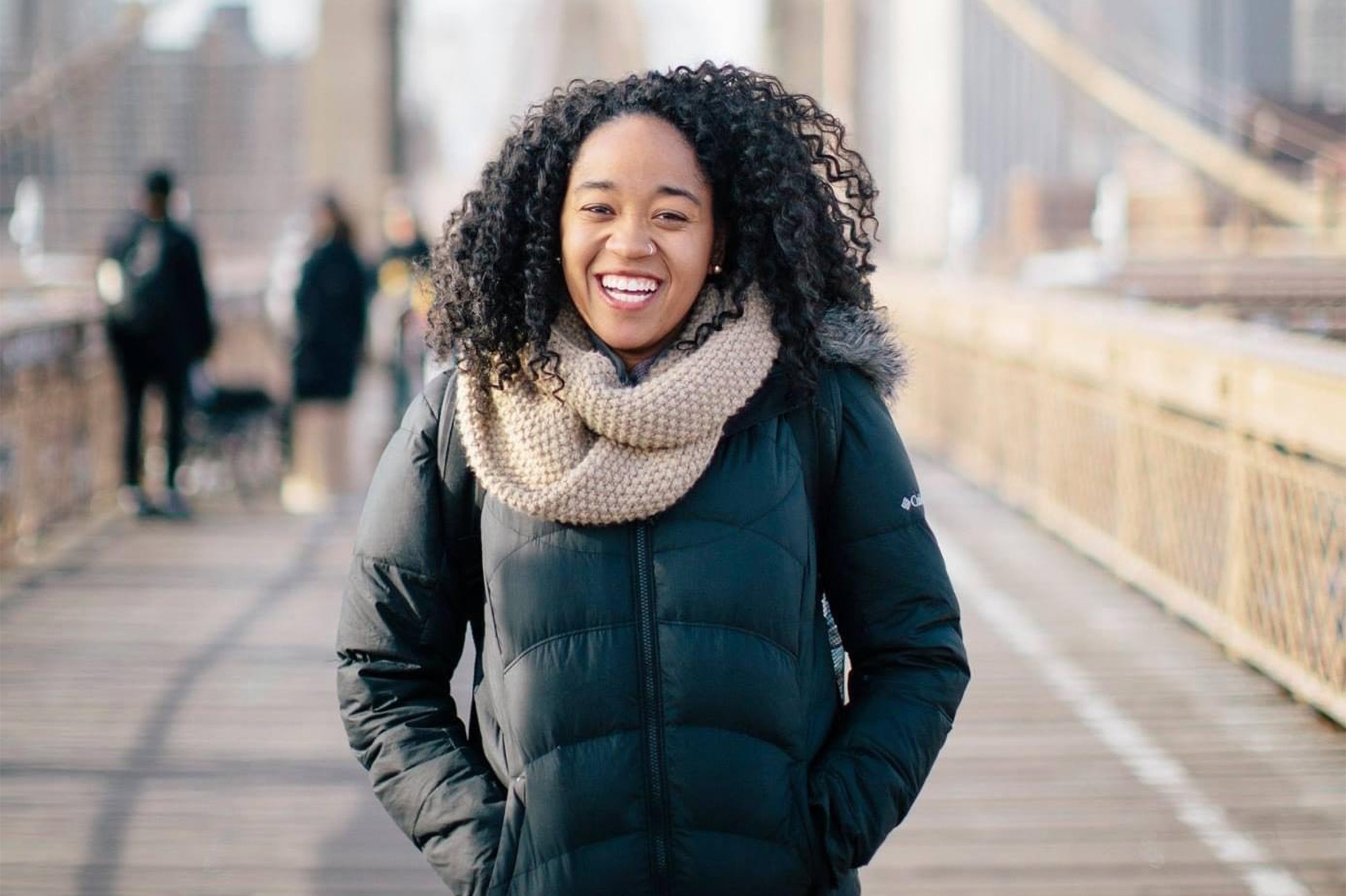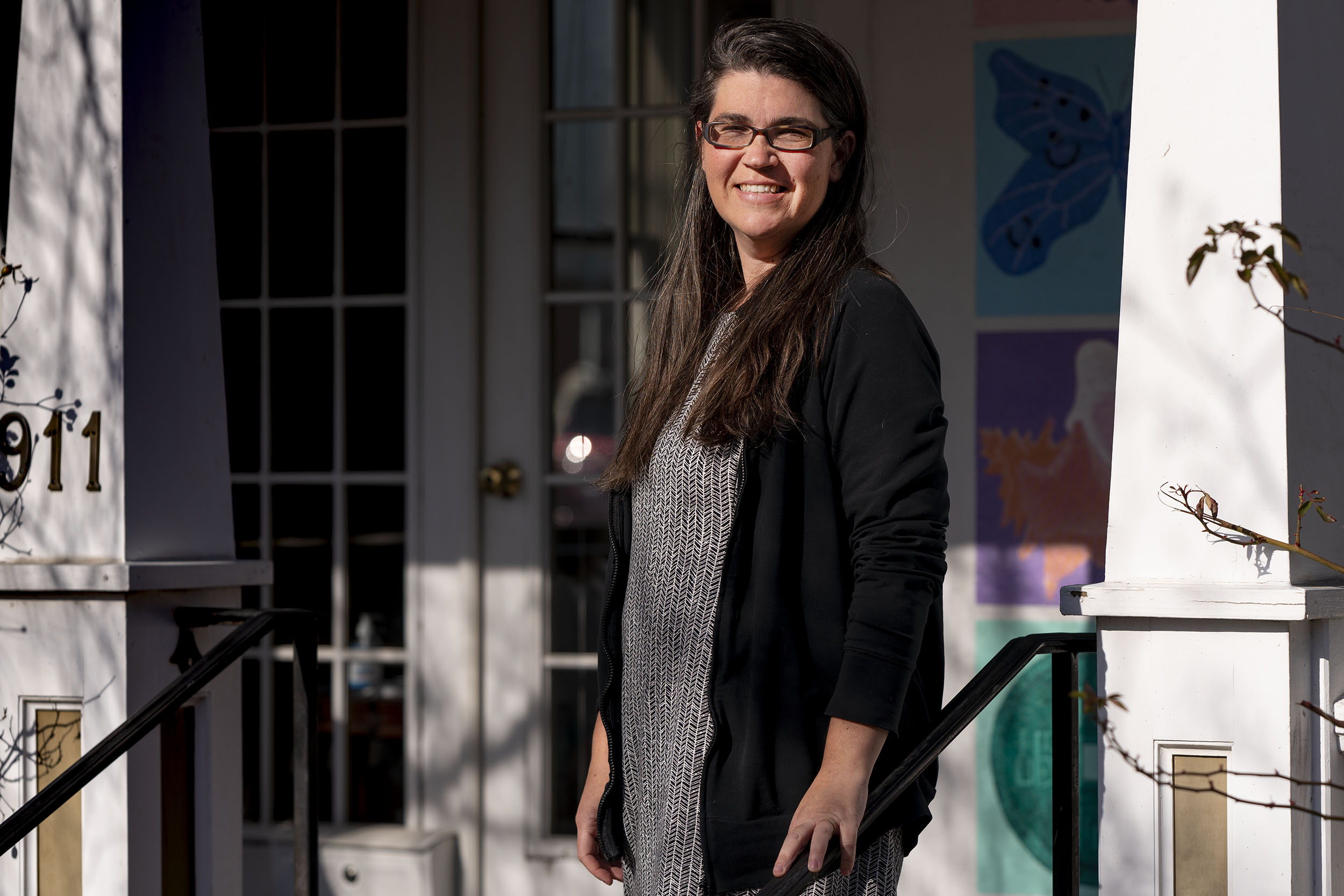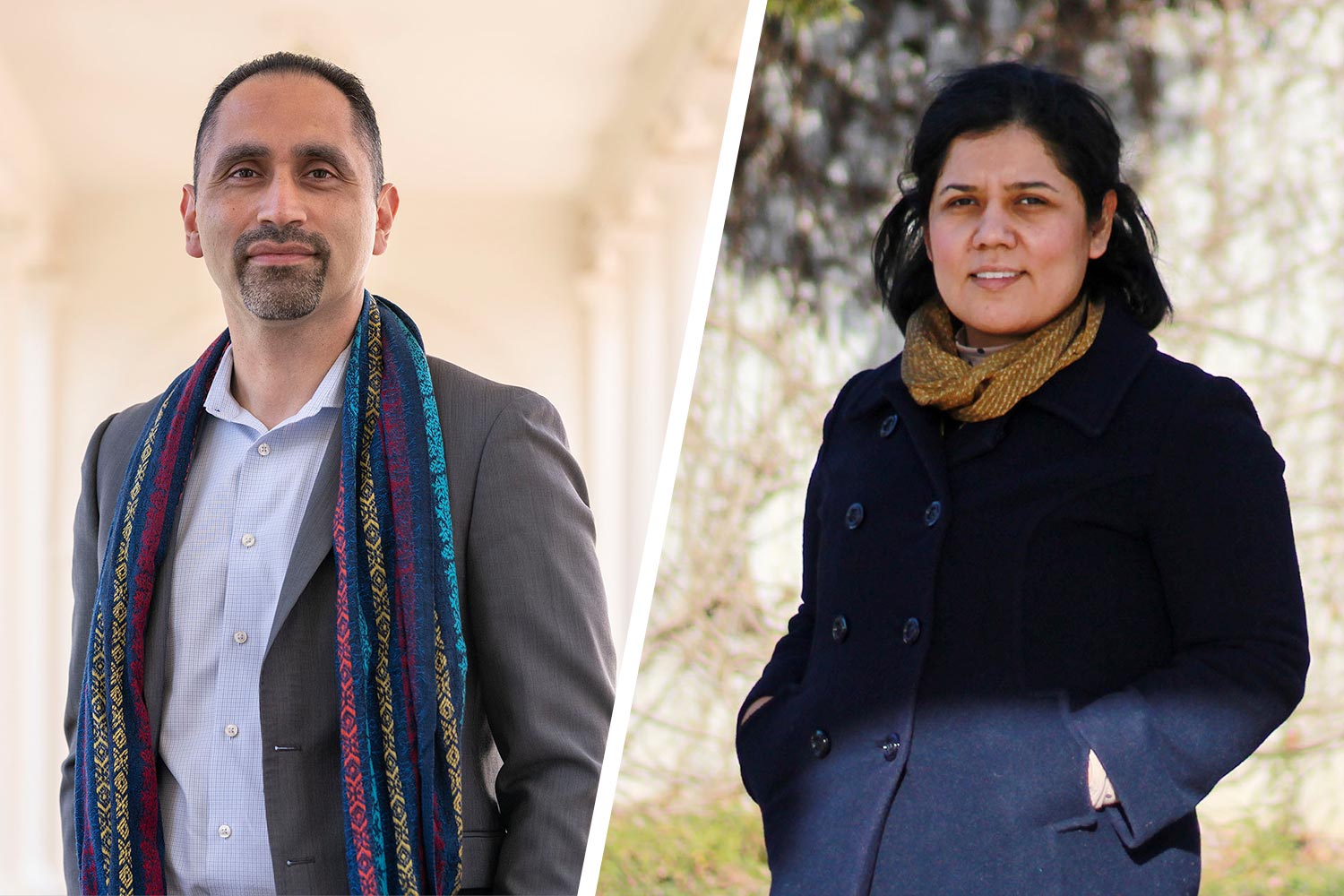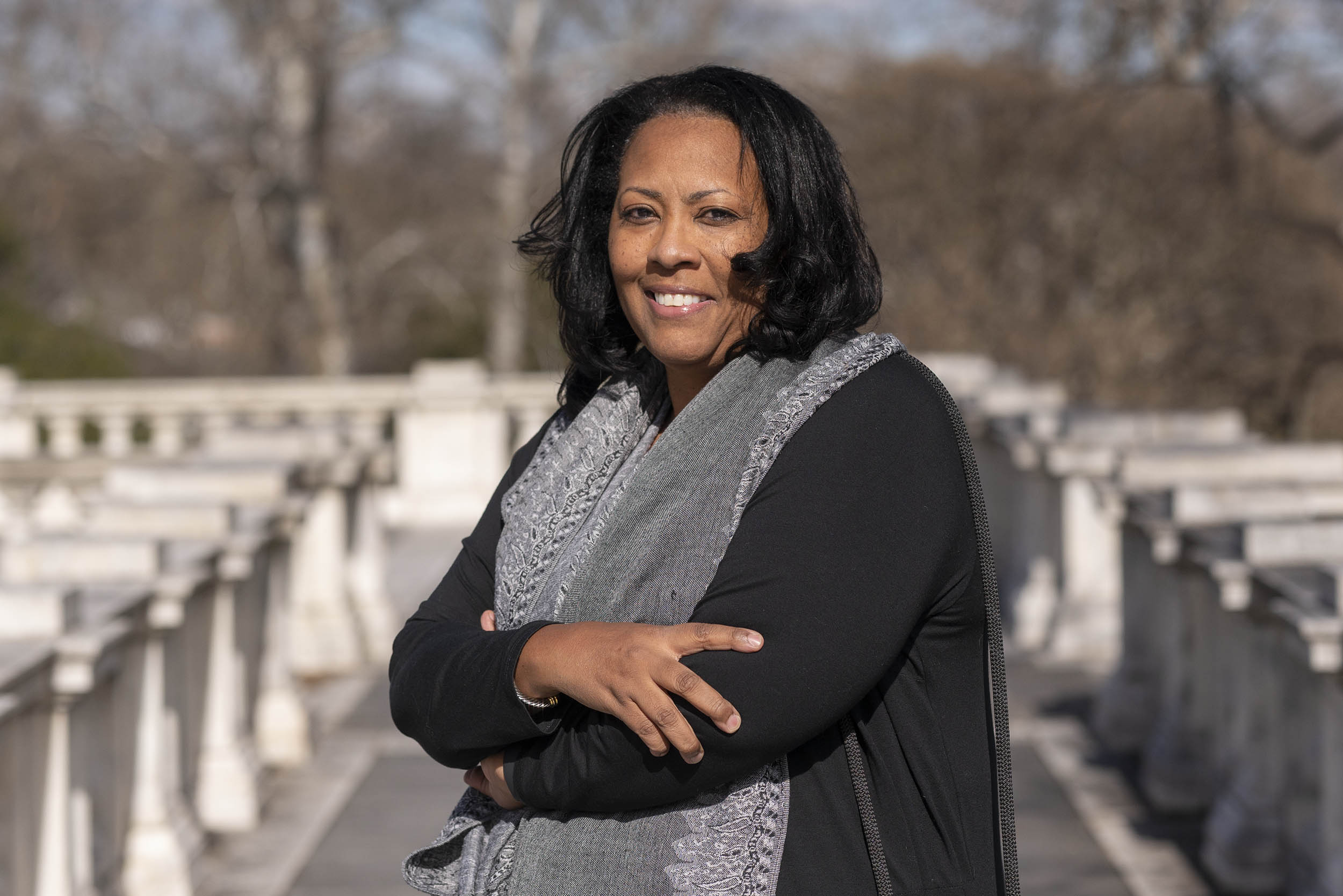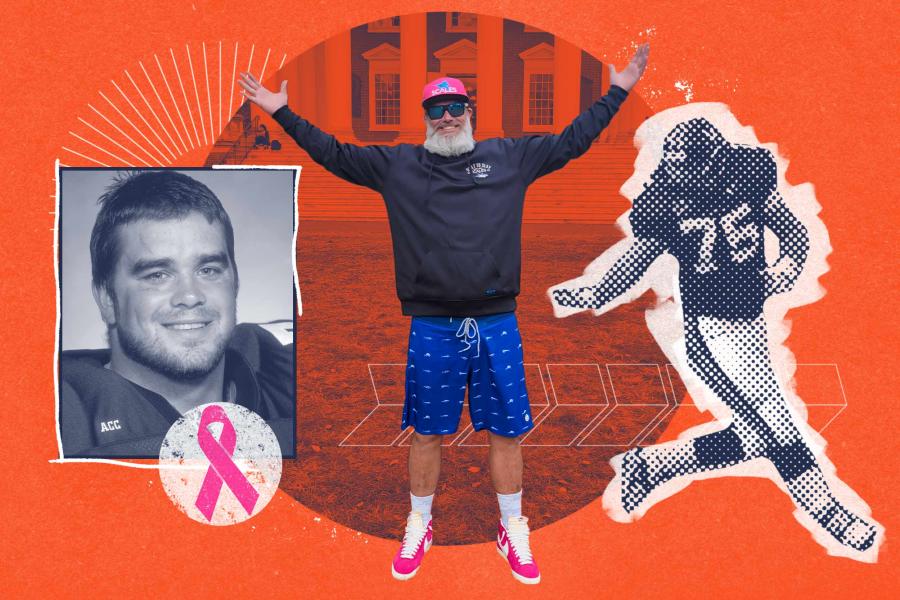Now, the UVA Equity Center, which administers the fellowship, has announced that it will extend the 2020 fellowships by one year, due to the unexpected changes caused by the pandemic, while also welcoming a new class of 2021 Fellows-in-Residence: Marian McCullough, Anna Mendez, Benita Mayo, and the team of Edgar Lara and María Esparza Rodríguez, who will work on a joint project. You can learn more about their projects below.
“We are very excited that we have the privilege to work with such a dynamic, diverse group of community leaders,” said Sherica Jones-Lewis, director of community research at the Equity Center. “The impact that they have the potential to make on the community is boundless, and we are just happy that we can assist them in meeting their goals. We see this work as integral to enacting our vision and mission at the Equity Center.”
The Community Fellows program is designed for individuals who have a history of working to reduce inequity in the Charlottesville community, and have a project that could benefit from access to UVA’s support and resources. Each fellow is chosen through an application process and receives a stipend and an assigned faculty mentor. Fellows can audit a UVA course each semester, and will speak about their work and meet with students and faculty through various classes and events.
2020 Adjustments
While the initial class of fellows knew they would undertake something new at UVA, no one realized just how novel that would be, as operations became largely virtual in March. Still, each fellow adapted and continued work on her project in some way – and all are looking forward to extending that work for another year.
Anderson, for example, has focused her work on mental health support for the Black community. Founder and director of the Braves Souls on Fire organization focused on Black mental health, Anderson’s original project goal was to bring mental health care to local salons, something she had already piloted before the fellowship began.
As 2020 progressed, however, and it became clear that Black communities were being disproportionately ravaged by the pandemic, Anderson decided to broaden her project, and advocate for a community mental wellness center.
“It has been a big shift, but it makes sense given all of the mental health disparities that Black men and women face, all of the racial trauma they carry without a place to unpack it,” she said.
Anderson envisions “a culturally affirming and liberating space for Black people to come in and feel uplifted,” centrally located in Charlottesville with access to therapists, peer support groups and other resources. She has named the future center Sankofa, a Ghanaian term referring to a symbol, generally a bird with its head backwards and feet forward, indicating the importance of understanding the past to make progress in the present.
She will use the remainder of her fellowship to advocate for support from the University and the city, with the hope of funding the center for at least five years.
Edwards-Allbaugh is focused on financial literacy programs for elementary and middle school students. Prior to receiving the UVA fellowship, Edwards-Allbaugh, who owns and operates a tax preparation and bookkeeping firm, The Tax Ladies, had led successful financial literacy programs for adults and young women as treasurer of 100 Black Women of the Charlottesville Metropolitan Area. Though in-person programming has been delayed, Edwards-Allbaugh has continued to work virtually and plan for future programming.
Hudson, a filmmaker and activist, is using her fellowship to continue her work documenting and sharing the history of Charlottesville’s Black community, including developing a docuseries and a podcast. Hudson has already completed a documentary, “A Legacy Unbroken: The Story of Black Charlottesville,” that premiered in 2019. Over this past year, she has continued with research and interviews, though some have had to be postponed until in-person interviews are safer.
Wright, meanwhile, is using her fellowship to build a directory of Black-owned small businesses, something she started on Small Business Saturday in 2018. She has brought on several interns to help develop the directory, including a website and a mobile app.
Class of 2021
The next class of fellows will work on projects including a virtual tutoring organization, proposals to decriminalize mental illness, a documentary photo series and a Latinx leadership program.
Marian McCullough
McCullough, a UVA alumna and classroom teacher in Charlottesville, started Tutor-ish in 2020 with seven fellow Black teachers, hoping to bridge an educational gap deepened by the abrupt switch to virtual learning when the pandemic began. The service aims to provide homework help, enrichment opportunities and remedial tutoring services through a series of affordable packages, with payment plans to help all families get the help they need.
One important element of the program, McCullough said, is that it doesn’t just emphasize grades, but the “whole child,” working to develop relationships with students and families, build students’ self-esteem and help them emotionally as well academically.
During her fellowship, McCullough will work on strengthening the new program and making it sustainable, to continue finding ways to bridge educational gaps even after the pandemic ends.
Anna Mendez
Mendez will focus her work on reducing the criminalization of mental illness, which she describes as a “leading cause of the socioeconomic inequality and poverty associated with being seriously mentally ill.”
Mendez serves on the board of the Charlottesville-Albemarle Therapeutic Docket, which helps eligible mentally ill defendants avoid incarceration and instead get mental health treatment and support. Mendez, the board president of Mental Health America of Virginia and executive director of Partner for Mental Health, was also recently appointed to Virginia’s Marcus Alert Implementation Team, a group of first responders and mental health professionals charged with developing a statewide non-police response system for 911 calls related to behavioral health crises. She chairs the Mental Health America of Virginia Public Policy Committee, and in that role has worked with several government agencies as well as UVA’s Institute for Law, Psychiatry and Public Policy.
In her time at UVA, she will focus on assessing the most effective approaches and interventions decriminalizing mental illness, using local data to identify the most effective strategies and policy changes for the Charlottesville-Albemarle area.
Edgar Lara and María Esparza Rodríguez
Lara and Esparza Rodríguez, both activists who have worked for years to support Latinx communities, will team to build a program to train and mentor future Latinx leaders in the local community.
Lara has experience working with Latinx communities both locally and statewide, and currently serves in a volunteer role as the director of community engagement for Sin Barreras, an organization founded in 2012 to support immigrant and Latinx communities in Charlottesville and the surrounding area. Among other initiatives, Lara has helped organize an annual Latin American Festival at IX Art Park, co-led a Driver’s License for All campaign, started a nine-month Charlottesville Latino Leadership class and co-founded the local immigration Rapid Response Hotline.
Esparza Rodríguez, currently a Ph.D. candidate in UVA’s Spanish program, has worked with organizations including the National Center for Youth Law, Sin Barreras, MOVE (Multilingual Outreach Volunteer Effort) and Charlottesville’s COVID-19 Emergency Relief Hotline. She has also taught a course focused on local and global social justice issues, “Writing for Social Justice and Change.”
The program they hope to build, called Conecta2: Latinx Leadership in Charlottesville, will train, support and empower future Latinx leaders by addressing issues including gaps in technology access and technological literacy, discussing issues important to the Charlottesville Latinx community, and finding and sharing resources among mentors and mentees.
Benita Mayo
Mayo describes yoga as “the doorway through which I began to develop a deep and positive relationship with my body,” and a tool she uses to drive social change. Mayo is a registered yoga teacher at the 200-hour level with additional yoga and meditation certifications focused on inclusivity, accessibility, trauma-informed yoga and mindfulness. She has led a Yoga for All Bodies program at UVA’s Contemplative Sciences Center, served as a founding member and facilitator for Meditation for People of Color at Common Ground and is a board member at Common Ground Healing Arts and Diversity in Recovery, among other roles.
Mayo is also a doula with Birth Sisters of Charlottesville, an organization focused on addressing maternal health disparities African American women face during pregnancy and birth. Black women, for example, are three to four times more likely to die from pregnancy-related causes than white women, and Black children face higher rates of pre-term delivery and low birth weight.
Photos have a powerful impact in uncovering inequities and pushing for social change. Mayo will use her fellowship to develop a documentary photo series addressing those disparities and advocating for community-based doula support to reduce those inequities. She believes that doula care, which includes nonclinical emotional, physical and informational support before, during and after birth, “can improve health outcomes, enhance care engagement and satisfaction and reduce spending on unnecessary procedures and avoidable complications.”
“I aim to raise awareness about the unacceptable maternal health disparities, show the positive impact community-based doulas have and bring positive action to the issues that affect women at one of the most vulnerable times of their lives,” Mayo said.
